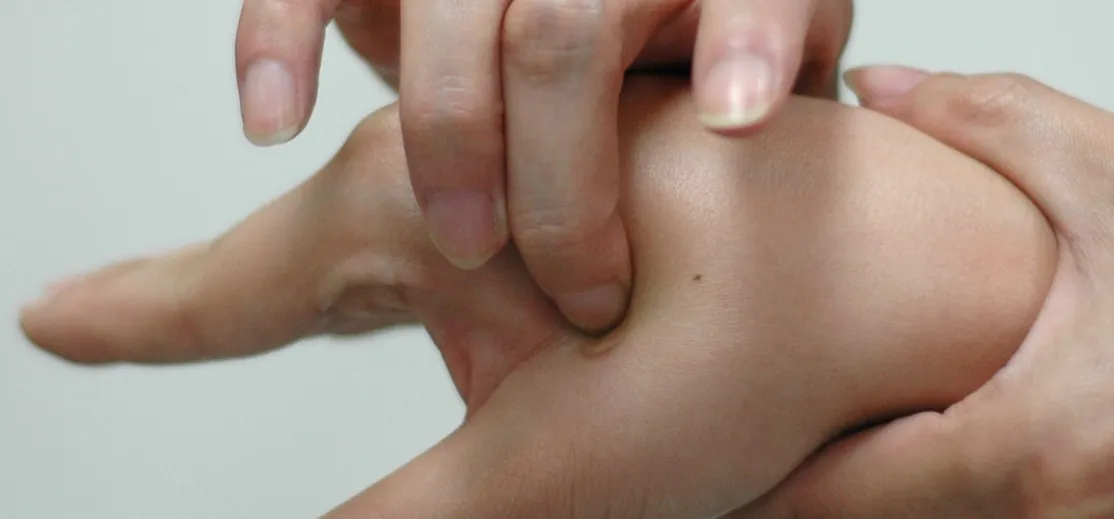If you've read any health news in the past year or so, you've probably been bombarded with headlines announcing that frequent sittersface certain death, even when you're just relaxing and watching TV at home.
From increased health risks and added laziness, sitting is becoming a really dangerous habit. And it's not just killing your lifespan and lovely physique—it's also ruining your work life. I've got eight reasons for you on why you need to get up off your ass more throughout the workday, and some of them will probably surprise you.
1. Think on Your Feet for Increased Creativity
There are a number of ways to boost your productivity while stuck at your desk, and yes, standing is one of them. But did you know that standing can also give you a creativity boost?
According to research conducted by business professors Andrew Knight and Markus Bauer, those who work together while sitting in a typical workplace conference room are more territorial, less interested, and uninterested in collaboration.
Those who were required to work while standing, on the other hand, were more engaged and open to working with their peers. Additionally, those who stood displayed a greater interest in working towards a group goal rather than individual ones.
So, what does this mean for you?
As Knight said in an interview with Reuters Health, "A workspace that encourages people to stand up is going to lead to more collaborative and more creative outputs." Eliminate the option to take a seat, and you and your coworkers will find more creative solutions, find new ways to work together, and enjoy something of a workplace harmony.
2. Stand Up Periodically for Better Concentration
Though your desk chair might be nice and cushy, feeling comfortable while working in front of your computer could be the reason you constantly feel like you need a nap. Standing up might seem like a pretty low-exertion move, but getting on your feet and staying on them still burns calories, gets your blood pumping, and raises your energy level, as JustStand.org notes.
Sitting, meanwhile, lures you and your body into a state of inaction, causing your blood flow to slow. As a result, you become unable to focus, and your mind starts wandering away from anything work-worthy.
Standing up, even if just for a few minutes at a time, can improve your ability to concentrate and get tasks done by 42 percent, according to Organizations in Motion. The group, created by sports scientist Jack Groppel, is dedicated to helping workplaces become more active on a daily basis.
In his work with various companies and offices, Groppel found that getting onto your feet and moving around, even just for a few minutes, can stimulate your body and mind. The effects of talking a quick walk around the office, or performing a few jumping jacks at your desk help increase your energy and focus for quite a while after you've returned to your seat.
So, forget about that fifth cup of coffee around 3 p.m.—stand up instead, and you'll feel the same energizing effects.
3. Feel Happier by Walking to Coworkers—Not Emailing Them
Who doesn't love avoiding office interactions with frustrating coworkers? Email and instant messengers solved the problem of having to make a phone call or a face-to-face visit to ask a question—which is especially helpful when you just aren't interested in walking to your coworker's desk. Unfortunately, communicating via email or chat isn't winning you many friends, regardless of whether or not you're in the market for any.
When we limit ourselves to communicating solely from our desks, we inherently spend more time sitting by ourselves. Rather than experiencing the joy—or frustration—of interacting with others, we interact solely with the brightly lit screens just a few inches away. As a result, we become less interested in participating in real, human-to-human communication.
Perhaps even worse, as researcher Robert Kraut and his team discovered, this lack of social involvement each day leads to feelings of loneliness, depression, and dissatisfaction with our lives.
Change your habits and start standing up when you need to get in touch with a coworker. By walking to their desk and posing questions in person, you gain more human interaction and engage yourself with the world beyond your desk.
4. Communicate Better on Foot
If you spend your days typing instead of talking, you slowly start chatting with yourself while working. I'm the first person to begin mumbling to themselves (sometimes very audibly) after spending a few hours typing away in my empty home office.
As you just read, shooting emails to your coworker, whether they're one cubicle over or located on another floor, negatively impacts your mood. But did you know that isolating yourself all day also erodes your social skills?
There's a reason you think your coworkers sound so inept in every email. Sitting in front of the computer reduces our ability to communicate in the real world. When we limit our interactions with real people, face to face, we limit our social interactions which, in turn, leads to a reduced ability to communicate with one another.
Technology isolates us, allowing us to rely on instantaneous answers and conversation without moving. Shooting questions to your coworkers via email deprives you of the opportunity to speak to them.
These faceless exchanges cause us to feel as though we have no social circle, and can even make us less likely to get out and connect with others. With so much time spent in isolation, we quickly become antisocial, and we are no longer able to communicate face to face.
As Kraut's aforementioned study discusses, an increased use of Internet communication will make you love Siri and shy away from your friends. Keep honing your social skills by talking to those around you, and asking question in person whenever you can do so beyond email.
5. Stop Slouching for Better Workplace Posture
Our slouched sitting habits are physically affecting how we stand, too. To keep your back in tip-top shape, it's best to be aware of how you're sitting in your chair while at work.
As a 2006 European Journal of Public Health study found, most of us spend our days tilted forward, craning our necks and unnaturally arching our backs to better see whatever's on our screen of choice. This hunched posture, however, doesn't end when we get out of our chairs at the end of the day.
Leaning forward for eight or more hours each day in a seated position can cause problems such as kyphosis, which The Wall Street Journal's experts define as a shoulders-hunched, tightened chest lean that over-extends the neck and head. Our bodies quickly adapt to this tech-friendly position, and we we become unable to stand properly, in a manner that keeps our spines aligned.
Don't let your desk define your posture. Instead of sitting and leaning to get a better eye on your emails each day, make adjustments.
Of course, standing for periods throughout the day is ideal, but not everyone is comfortable swapping out their current comfort for a standing desk. If your computer isn't currently angled to meet your eye level without straining, spend a few minutes playing with the tilt. Seat too short? Snag a new chair, or add a cushion or two until you can stop arching forward.
6. Meetings Won't Last as Long When Standing
You already know that meetings eat up unnecessary time, keeping you from the work piling up on your desk and forcing you to sit through endless, unimportant debates. To shorten your next staff meeting, ask that everyone in the room stay standing for the entirety of the session.
Think of it this way: when your feet are stuck in a pair of pinching, blister-inducing shoes, you don't want to spend very much time walking. In the same vein, standing typically becomes uncomfortable quickly. Once you and the other meeting attendees reach the point of discomfort, everyone will be anxious to wrap things up and return to their desks.
As mentioned previously standing during group sessions also increases creativity and willingness to work together, so really, your office has nothing to lose if you all take a stand instead of a seat!
7. Standing More Makes You Look Better at Work
Abdominals can go two ways: you either love showing yours off, or try to keep them from ever making an appearance. No matter how much time you put into your ab routine at the gym, your constant sitting at work could ruin that carefully crafted six pack.
Standing, though it doesn't usually cause you to break into a workout-worthy sweat, does a lot for your abs. As Bonnie Berkowitz and Patterson Clark, writers for The Washington Post explain, standing upright requires balance, so our abdominal muscles contract, tightening to keep up from falling.
When we sit down, our posture causes our abs to give up, in a sense. Because they aren't needed to help us stay stable, they are unused altogether. Additionally, our bad posture that forms while we slouch in chairs or lean over our desks causes our weak ab muscles to increase our spine's arch—sometimes leading to swayback and other achy problems.
At let's face it—being physically unfit leads to less self-confidence, which hampers your full potential at work.
8. Get on Your Feet for Less Brain Glitches
Think your brain is working just fine? If you spend most of your days in your cushy desk chair, your synapses might not be firing correctly.
We already know that our body faces more detriment than benefit when we opt for the comfort of sitting over the potential pain of standing. Yet your mental state is also determined by your typical posture. When you plop down at the start of your work day, your body adjusts, and, as mentioned earlier, your blood flow can slow.
As a result, you might experience brain glitches.
Have you ever wondered why you feel like you can't focus on anything? It's probably time to stand up. Linda Wasmer Andrews from Psychology Today points out that, in addition to staying put in one place all day, sitting at work causes us to mentally disconnect.
We stare at bright, unchanging screens, letting our minds zone out, or try to tackle multiple tasks at once rather than focusing. In either case, the activities we perform while seated affect our ability to focus and connect away from work.
Stop the Sedentary Cycle
Interested in changing up your habits? Transitioning from sitting to standing doesn't have to be an overwhelming, exhausting switch—there are countless ways to work more standing time into your work routine.
Take your life from sedentary to standing by trying some of the creative tips in Yumi's guide to getting up more during the day. Work in lunchtime walks, or turn your 10-minute social media breaks into short strolls around the office.
If you're feeling the painful effects of uncomfortable chairs or poor posture, give your back some relief with a little duct tape and invisible balloons.
Standing while everyone else is sitting might feel awkward at first. Ignore your coworkers' potential stare by reminding yourself how healthy you're becoming, and who knows, maybe you'll start a trend so popular the office will have to splurge for standing desks.
Cover image via Slworking2/Flickr




































Comments
Be the first, drop a comment!